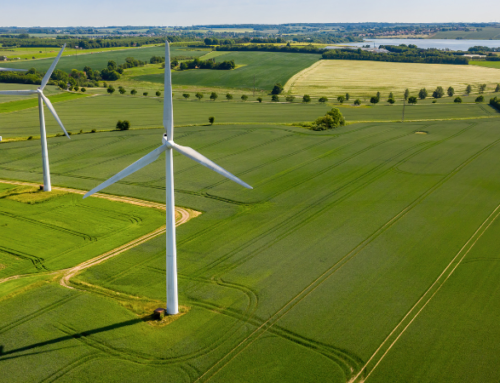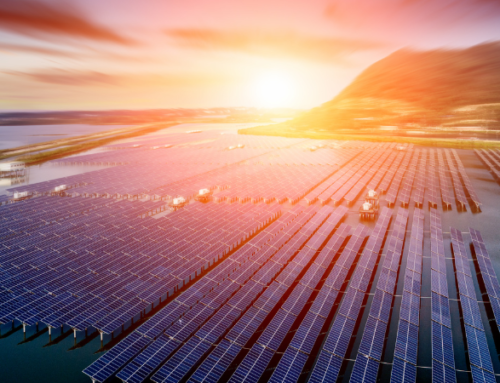Natural gas, one of the most abundant fossil fuels in the United States, is at the crossroads of the energy transition. While natural gas has done wonders by replacing more harmful fossil fuels such as coal, there is still much controversy surrounding this energy source. In this article, we will explore one of the fastest growing aspects of the natural gas industry, renewable natural gas, or RNG. This alternative form of natural gas is shaping the future of the energy economy as we know. Let’s dive in deeper to learn more.
What Is Renewable Natural Gas?
Renewable natural gas, like conventional natural gas, is a methane-based fuel that can be used as energy. RNG is also referred to as biomethane because it is a byproduct of natural waste materials such as landfill waste, food waste, and waste water. In the renewable natural gas production process, anaerobic digestion and gasification methods are used to break down organic matter into methane gas. The process is always carbon-neutral because the carbon released during its production process is almost always equal to carbon absorbed by the organic material during its life cycle. This unique production process places RNG in the renewable and sustainable energy category.
What Is The Difference Between Conventional And Renewable Natural Gas?
The main difference between conventional natural gas and renewable natural gas is the way that the gas is sourced and produced. Conventional natural gas is extracted from underground rock formations using traditional drilling techniques and hydraulic fracking methods. On the other hand, renewable natural gas is produced from organic waste materials. Due to the production process, these two fossil fuels differ significantly in their environmental impacts and roles in the energy industry as a whole.
Uses For RNG
Like conventional natural gas, after biomethane RNG has been refined to pipeline-quality gas, it can be used in a similar manner as traditional gas. Some of the modern-day applications for renewable gas include:
- Power generation
- Heating of homes and businesses
- Industrial heating processes
- Transportation in natural gas-powered vehicles
- Agricultural heating systems
- Microgrid and distributed energy systems
Pros Of RNG
There are many positive aspects to renewable natural gas when compared to conventional gas and other fossil fuels. Let’s explore some of the pros of renewable natural gas:
Cleaner To Source
Because RNG is made by breaking down organic matter, it is much cleaner to source and produce when compared to traditional nat. gas. Traditional gas producers typically utilize hydraulic fracturing methods that can contaminate local water supplies and disrupt the geological makeup of the earth.
Better For The Environment
RNG helps to promote a cyclical energy cycle by utilizing waste material that would otherwise decompose. Traditional natural gas, however, relies on heavy machinery and drilling operations that can lead to methane leaks and worse. Because of this chemical similarity, RNG burns just as cleanly as conventional natural gas.
It’s Carbon Neutral
While renewable natural gas is not carbon negative, it is thought to be carbon neutral. The amount of carbon emitted in the production process is the same as the total carbon absorbed by the waste matter during the course of its life. RNG production captures methane that would otherwise be released into the atmosphere as a potent greenhouse gas. This process can result in a lower overall carbon footprint for RNG.
Cons Of RNG
Despite its renewable benefits, there are several challenges or cons associated with the development of RNG. Let’s explore some of the controversy surrounding renewable natural gas in more detail.
It’s More Expensive To Produce
Renewable natural gas is more expensive to produce than conventional natural gas. The biomethane that is made by breaking down waste matter is not of pipeline-grade and needs to be treated before it can enter the natural gas distribution system. In addition, the technology required to produce RNG involves significant capital investment.
It’s Not Scalable
Unlike drilling for natural gas beneath the earth’s surface, sourcing organic waste material can be quite cumbersome and expensive. In order to keep a consistent supply of RNG, an entire supply chain needs to be created and maintained that includes the gathering and processing of waste materials. On a larger scale, this is not sustainable nor economical.
Methane Leaks
While producing RNG is safer than fracking, there is still quite some controversy surrounding the potential for methane leaks. During the production and processing of RNG, if any methane escapes into the atmosphere, it can harm any environmental efforts at hand.
The Current State Of Renewable Natural Gas
While there has been a lot of excitement, attention, and experimentation around RNG, it is not widely adopted yet in the United States or the rest of the global energy economy. One of the main reasons for a lack of market share is due to the absence of a robust infrastructure of RNG production equipment and waste supplies.
While these setbacks have hindered the adoption of RNG, there are many recent positive happenings that are beginning to spur its growth. From new legislation such as the Renewable Fuel Standard Program which requires a certain percentage of fuel sold to be renewable to recent advancement in RNG production technology. The future seems bright for renewable fossil fuels.
The Future Of Renewable Natural Gas
The RNG sector in the U.S. is poised for exponential growth, supported by favorable environmental policies, technological advancements, and increasing recognition of RNG’s as a low-carbon energy source. The future of RNG is on overcoming challenges, scaling the supply chain, and expanding technology to fully realize RNG’s potential as a key energy source in the United States.
Want To Speak To A Gas Market Expert?
If you are interested in learning more about renewable natural gas and how it might apply to your business, contact us today. Our team of natural gas experts is on the cutting edge of RNG technology and can help you understand and explore the U.S. natural gas markets. Click below to speak to an energy expert today.



